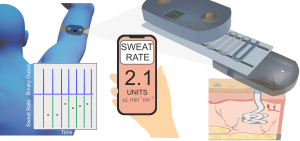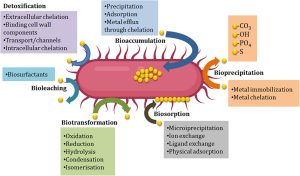
Heavy Metals, Your Immune System, and Autoimmunity
Heavy Metals, Your Immune System, and Autoimmunity The Unseen Link Ever wondered why, despite eating well and cutting out junk, your body still feels off? Or why auto-inflammatory flare-ups don’t

 Let’s talk about something that doesn’t often get enough attention: how environmental toxins, hefty metals, can sneakily sabotage a woman’s libido and sexual desire.
Let’s talk about something that doesn’t often get enough attention: how environmental toxins, hefty metals, can sneakily sabotage a woman’s libido and sexual desire.
We tend to think of sex drive as something that’s either hormonal or psychological – and sure, those play a huge role. However, there’s another layer that’s often overlooked, and that’s the toxic load. More specifically, the accumulation of heavy metals like lead, mercury, cadmium, and arsenic in the body can quietly chip away at our vitality, hormonal balance, and yes – even our desire for sex.
This is something I’ve seen both in research and in the real world. So let’s break down exactly how this works.
Heavy metals are elements like lead, mercury, cadmium, arsenic, aluminum, and others that can be toxic to the human body even in small amounts. While some metals (like iron, zinc, and copper) are essential in tiny amounts, others have no known biological function and are downright harmful.
We’re exposed to these metals from a number of sources:
What’s scary is that these metals bioaccumulate – meaning they build up in the body over time, especially in fat, bone, and brain tissue.
It turns out, a lot.
Heavy metals can interfere with a woman’s sex drive by disrupting hormones, damaging nerves, messing with neurotransmitters, and impairing mitochondrial energy production. And libido – which is far more complex than just estrogen levels – depends on a fine balance of all these systems.
Let’s explore the mechanisms one by one.
The endocrine system – your body’s hormone-regulating machinery – is particularly sensitive to toxins. Many heavy metals act as endocrine disruptors, meaning they interfere with the natural production, release, transport, and action of hormones like estrogen, progesterone, and testosterone.
Here’s how:
⬥ Mercury & Estrogen
Mercury has been shown to bind to sulfhydryl (-SH) groups in enzymes that are essential for hormone metabolism. This can lead to an imbalance in estrogen metabolism, promoting higher levels of circulating “bad” estrogens (like 16α-hydroxyestrone), which not only disrupt libido but may also contribute to conditions like PMS, fibroids, and estrogen-dominance symptoms.
A study in Environmental Research found that women with higher blood mercury levels had altered estrogen levels and delayed menstrual cycles, suggesting a strong link between mercury and sex hormone dysregulation【1】.
⬥ Lead & Testosterone
Though testosterone is often thought of as a “male hormone,” it’s also crucial for female libido, muscle tone, mood, and energy. Lead exposure has been associated with reduced testosterone production in both men and women. One study published in The Journal of Clinical Endocrinology & Metabolism found that even low levels of lead were correlated with reduced circulating testosterone【2】.
⬥ Cadmium as a Xenoestrogen
Cadmium is particularly sneaky – it can mimic estrogen in the body. This makes it a xenoestrogen, meaning it binds to estrogen receptors and stimulates them inappropriately. The result? Confused hormonal signaling, mood swings, and sexual dysfunction.
Our brain chemistry is central to desire. Dopamine, the “motivation and reward” neurotransmitter, plays a huge role in sexual arousal. Serotonin, which governs mood and emotional balance, also influences sexual satisfaction and responsiveness.
Several heavy metals interfere directly with these brain chemicals:
Bottom line: if your neurotransmitters are out of whack, your libido takes a nosedive.
The thyroid gland regulates metabolism, energy, and hormonal balance – all of which influence sexual health. When the thyroid is underactive (hypothyroidism), common symptoms include fatigue, low mood, weight gain, and low libido.
Unfortunately, heavy metals are thyroid saboteurs:
This creates a double-whammy: not only does your metabolism slow down, but your sex drive fades along with your energy.
Let’s be honest – if you’re constantly exhausted, it’s hard to feel sexy.
Heavy metals damage mitochondria – the energy factories inside your cells – leading to lower ATP (energy) production. Mercury and arsenic are especially toxic to mitochondria and can even trigger oxidative stress and inflammation, both of which are strongly linked to fatigue and burnout.
So if you’re dragging yourself through the day, don’t be surprised if desire has left the building too.
The pituitary and hypothalamus are located in the brain and act like the master switches for hormone regulation. They send out signals that tell the ovaries to produce estrogen, progesterone, and testosterone – all crucial for a healthy libido.
Studies have found that heavy metals like lead and mercury can accumulate in these parts of the brain and interfere with signaling pathways【5】. That means even if your ovaries are healthy, they might not be getting the right message.
Inflammation is the body’s response to injury or irritation, but chronic inflammation is a big problem. It’s now understood that inflammation in the body – especially in the brain – can suppress libido by affecting dopamine receptors and hormonal signaling.
Heavy metals trigger inflammation by activating the immune system and generating oxidative stress. C-reactive protein (CRP), a marker of systemic inflammation, tends to be higher in people with elevated heavy metal exposure【6】.
And the science is clear: inflammation kills desire.
Heavy metal toxicity can also contribute to:
All of these are libido killers.
Plus, if you don’t feel well in your body, it’s harder to feel desirable or interested in intimacy. Mental health and sexual health are deeply intertwined.
Scientific References
Here are a few key studies and papers if you’d like to dig deeper:
What Can You Do About It?
Okay, that’s a lot. But here’s the good news: there are ways to reduce your toxic burden and reclaim your vitality and libido.
🥬 1. Support Your Detox Pathways
Your liver, kidneys, gut, and lymphatic system are responsible for filtering out toxins. Give them some love by:
🍋 2. Use Natural Chelators
Certain substances can bind to heavy metals and help remove them. These include:
A scientifically researched natural supplement that contains all the abovementioned natural ingredients is HMD (Heavy Metal Detox). It would be best to take this for 3 months – see 90-DAY ULTIMATE HEAVY METAL DETOX KIT.
🧪 3. Test for Heavy Metals
A hair mineral analysis is one of the best and non-invasive tests to get an idea of your heavy metal load. Work with a functional medicine doctor to interpret the results.
🧘 4. Prioritize Sleep, Movement, and Stress Reduction
Your body can’t detox properly if you’re constantly in fight-or-flight mode. Prioritize rest, movement, and emotional support.
🥗 5. Clean Up Your Environment
Final Thoughts
Libido isn’t just about hormones or mood – it’s a mirror reflecting your whole-body health. And when heavy metals are weighing you down, your sexual energy might be one of the first things to disappear.
The good news? Once you reduce your toxic load, many women notice a dramatic shift. More energy. Clearer thinking. Better moods. And yes – a stronger, more vibrant connection to their own sensuality.
If you’ve been feeling like your sex drive has vanished into thin air, it might be time to stop blaming yourself – and start looking at your toxic burden.
Your body (and your libido) might just thank you.

Alkaline Detox Diet best body detox best detox kit best detox supplements best full body detox best heavy metal detox best heavy metal detox for adults best herbal detox best metal detox best thc detox kit body cleanse supplements body detoxification supplements Causes Arsenic Poisoning children and heavy metals chlorella detox Copper Toxicity in Drinking Water detox kit detox pack detox supplements detox tablets Does Sweating Really Release early symptoms of heavy metal toxicity full body detox kit hair mineral analysis heavy metal detox heavy metal detox kit heavy metals detox heavy metals in food Heavy Metals in Makeup Heavy Metals in US Foods HMD Heavy Metal Detox HMD Ultimate Detox Pack Natural Heavy Metal Detox natural supplement for aluminum ORGANIC CHLORELLA pure body detox pure body extra detox Sexual desire in women Sources of Copper Exposure Thallium Poisoning toxic metal detox Toxic metals and sex Toxic metals and women's sexual desire toxic metals in food ultimate detox

Heavy Metals, Your Immune System, and Autoimmunity The Unseen Link Ever wondered why, despite eating well and cutting out junk, your body still feels off? Or why auto-inflammatory flare-ups don’t

Wearable Sweat-Induction Devices for Detox What Works, What Doesn’t, and How I Combine Them with Dr. Georgiou’s HMD™ Protocol When people ask me for a “do-able” detox routine that doesn’t

The Microbiome’s Role in Heavy-Metal Absorption and Elimination Why your gut bacteria can make detox easier—or harder (and how HMD™ fits in) If two people eat the same fish, drink
Detoxmetals.com specializes in natural heavy metal detox supplements for eliminating heavy metals naturally from the body.
GMG DA VINCI HEALTH LTD Panayia Aimatousa 300 Aradippou 7101, Larnaca Cyprus
[sibwp_form id=1]
If you’re not receiving an email in your inbox, please check your spam folder. Sometimes legitimate emails can be mistakenly marked as spam. If you find the email there, you can mark it as “Not Spam” to ensure future messages from that sender go to your inbox
